Convenience Store meets retailers who have reached out into the community with the aim of reducing anti-social behaviour and improving conditions for all
The riots that blighted high streets throughout England last month highlighted how vulnerable convenience stores are. As violence spread around the country, retailers became sitting targets for looters and raiders, many of whom came from the very neighbourhoods that they were attacking.
Stores were damaged, stripped of stock and in some horrific cases razed to the ground, with the Association of British Insurers estimating that the damage done to businesses will total more than £200m. However, while store owners may be able to re-stock and rebuild helped by insurance claims or through the Riot Damages Act, the events will continue to resonate with hard-working retailers for a long time to come.
It’s not just riot-affected stores that have suffered at the hands of local criminals, though. C-stores are often seen as soft targets for anti-social behaviour, shoplifting and robbery, with local youths scaring away customers and making it difficult for retailers to trade. An unfortunate irony of the situation is that if convenience stores are forced to close, even temporarily, because of theft or anti-social behaviour, the communities that they serve lose out as well.
But rather than sit back and allow themselves to be victims, many retailers are choosing to take a pro-active approach to tackling anti-social behaviour and are engaging with their communities to prevent low-level crimes escalating into something worse.
What YOU CAN DO
Contact the police - whether it’s to report a crime, improve security or find ways you can help them protect the community, it’s vital that you build up strong links with your local force
Lobby your MP - they may not be aware of what’s going on so either write to them or visit to let them know your concerns. It’s their job to ensure that a community is working together properly so find out if you can assist with that
Talk to your customers - get to know the community a little better. It will help you integrate more with your community and it’s a good chance to see if other people living in the area are concerned about the same issues as you
Sponsorship - help out with the local school, sports club or youth group in whatever way you can. If you are seen in a positive light as providing a service to young people, you are less likely to be targeted by those same young
Work together - join your local business group to build up relationships with other retailers in the area, and if there isn’t one near you then set one up
Government help
Retailers keen to get involved with their community to prevent crime and antisocial behaviour may be able to tap into funding to help with such projects.
Minister for crime prevention and anti-social behaviour Baroness Browning recently announced £5m-worth of grants to aid new and creative ways of working within communities to tackle crime. The Community Action Against Crime Innovation Fund is designed to bring together active citizens who are eager to cut down on crime in their area.
“Voluntary groups play a vital role in empowering communities to work together to tackle crime and antisocial behaviour that blights many of our towns and cities,” said Baroness Browning. “This new funding will help us drive up action, encourage more creative solutions and build safer neighbourhoods for everyone.”
Applications from voluntary and community groups are being accepted now and the deadline is December 1, 2011. For more information on applying for the grant, visit www.homeoffice.gov.uk/crime/partnerships/innovation-fund/.
Nigel Dowdney and his wife Sharon were beset with problems when they first took over their Earlham Shopper store in Norwich, which trades on a housing estate. “We were quite new to the area and some of the local community didn’t take to us,” he explains. “We had gangs of youths hanging around outside the store all of the time, causing mischief and frightening customers away.”
The situation soon deteriorated further and the pair were often victims of shoplifting, robberies and even assault. “I’ve been chased around the store by a man with a syringe which he claimed was infected with HIV; been hit over the head with a piece of wood; and shot at with an air rifle,” says Nigel. “They made it very hard for us to keep going.”
Rather than throw in the towel, Nigel and Sharon decided to do something about it. “We were considering giving up. We work very hard for this community and it was breaking our heart the way things were going,” he says. “However, we believed that we could help this area.”
They started by setting up a Neighbourhood Watch scheme with other businesses, and encouraging locals to come to them if they had a problem with crime. “We knew that people were very hesitant to talk to the police if something happened they were afraid that would make matters worse,” Nigel says. “So instead, we asked people to tell us their problems and we would help them report it to the police.”
As well as galvanising the local residents, Nigel also started forging stronger links with the police. “When the problems were at their worst the police were nowhere to be found,” he says. “I would call them on an almost daily basis, but they were little help. One officer actually told me that ‘if I can’t stand the heat, I should get out of the kitchen’, which wasn’t too helpful to say the least.”
Enlisting the help of his local MP, Nigel met local police and convinced them that they needed to have more of a presence on the estate. “It took a while to do so, but now there are police around on a regular basis when before it was only once a day,” he says. “Also, they used to drive quickly through the estate, but now have foot patrols so they see more of what’s going on. The additional police presence really helps.”
His customers were wary at first, yet slowly but surely Nigel began to see some progress and attitudes started to change. “People now see us as a ‘conduit to the police’. There has been a hardening of attitudes towards crime, too. Others were sick and tired of the situation as well, but it just needed a little spark to get things going.
“It’s important that people realise that stores like ours are more than just businesses there’s a reason why we refer to ourselves as ‘independent community retailers’.”
Their goal of reducing crime has been met, says Nigel. “There’s nowhere near the level of crime in and around the store,” he asserts. “We suffer less from anti-social behaviour and people have realised that they don’t just have to take it. A couple of months ago someone tried to break into the store and while they didn’t manage to get anything, witnesses were quick to come forward and help. That wouldn’t have happened at the beginning, but now people are sticking together.”
However, Nigel fears that the recent government decision to cut police budgets may undo some of the good work. “Any reduction in funding is a big mistake and it will be the communities that will end up paying for it,” says Nigel. “We’ll obviously keep at it and keep working within community, but we do need the help of the authorities to fight this.”
Nigel advises other retailers who are experiencing what he has not to give up. “You’ve got to get out there and start meeting people in the community,” he says. “You will get some knockbacks and progress may be slow, but it will happen eventually if you keep at it.”
Val Newman had her share of knockbacks when dealing with anti-social behaviour. Her Tamar View Community Co-op in Devon was often a target for gangs and with the local police force stretched, she initially struggled to find a way to get to grips with the problem.
“There were kids outside the store all of the time,” she says. “I was shouted at every day, and attacked quite often. At first I was very aggressive, shouting at them, but that just added fuel to the fire.”
When the situation worsened, Val spoke to national youth crime prevention programme Positive Futures, and they advised her to try a different tactic. “I started talking to the youths properly and trying to get to know them, rather than just shouting at them,” says Val. “I found that it defused the situation somewhat and the problem lessened straight away.”
Rather than leaving it at that, Val decided that she wanted to do more for the kids in the area. “It’s a very deprived area with nothing for the children to do,” she says. “I spoke to them to find out what would interest them. A lot of them expressed interest in boxing and we all thought it would be a great way to burn off some energy.”
Sign our epetition calling for tougher sentences for crimes against retailers
As a result, she decided to set up a non-contact boxing club. Val helped raise £1,000 for boxing equipment by doing a sponsored job swap on a building site for a day and holding raffles in the store. With help from the local police community support officers, she found a venue for the classes and the club is going strong.
“The boxing club has made a big difference to the crime rate as the local kids now have something to do and they have even built up a rapport with the police,” adds Val. “It has been very rewarding and changed me as a person. Rather than fighting the kids, I’m fighting with them.”
Nigel and Val have shown that if you reach out and address the problem rather than ignoring it or giving up altogether, you can make a difference to your future and that of the community you trade in. n
















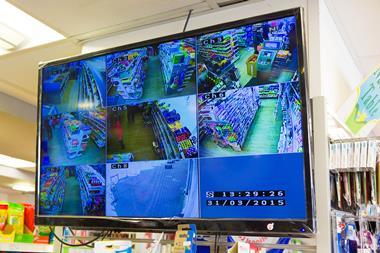
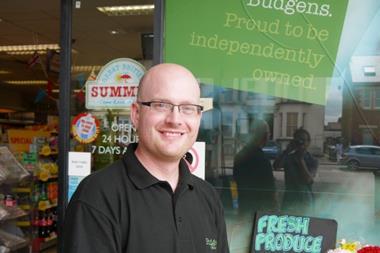
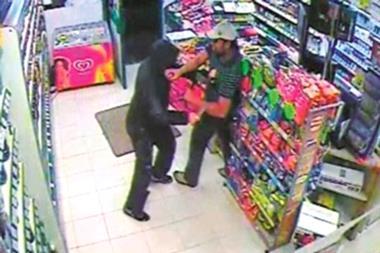
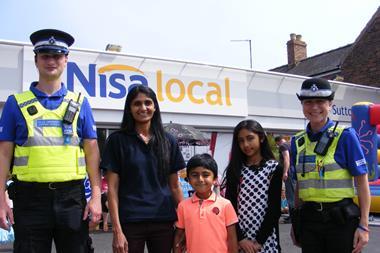

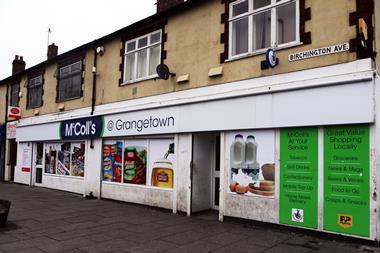
No comments yet